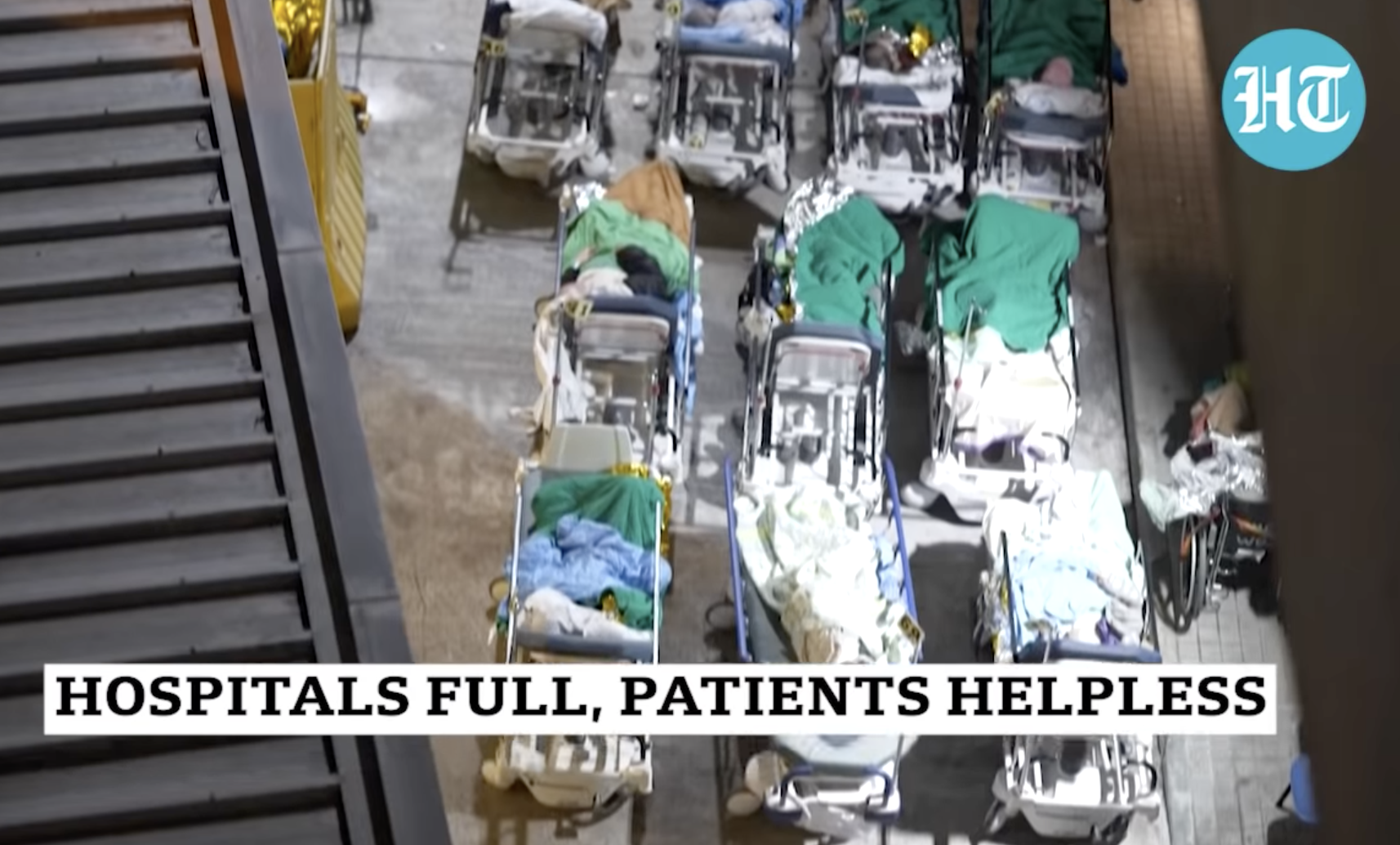BLOOMBERG – Three children under the age of five have died in Hong Kong’s spiraling Covid outbreak, a disproportionately large number that has local parents anxious, though pediatricians say it could just be a grim coincidence.
While the numbers are too low to draw any conclusions, according to experts, the children — aged 11 months, 3 and 4 years old — make up nearly 0.3% of the 1,153 fatalities that have occurred in this wave of infections. None had known underlying health conditions.
Their deaths are being investigated by the coroner, according to the Hospital Authority.
The child deaths are higher than in countries such as Australia and Singapore, which originally adhered to the same zero-tolerance policy as Hong Kong but are now opening up.
Australia has more than 5,300 Covid fatalities, including six in children. No one under age 20 has died from the virus in Singapore during the past year.
In the U.S., where more than 950,000 people have died from the virus, children under the age of 5 account for 466 — or around 0.04%.
Frightened Parents
While the situation has alarmed parents, the majority of children who contract Covid experience mild symptoms and recover uneventfully in seven to 10 days, said Kwan Yat-wah, a pediatric consultant at Princess Margaret Hospital.
He called on parents to get their children vaccinated as soon as they qualify and to monitor them for symptoms such as shortness of breath, convulsions, heart pains and a quickening pulse, all indications that they should be seen by a doctor immediately.
With nearly 2,000 children hospitalized because of the virus in Hong Kong, parents also are fretting about a policy that doesn’t allow healthy parents to stay with their sick children due to lack of space.
The outbreak, which has seen over 300,000 new infections since January, has stretched the city’s health care system to the limit … READ MORE.
What’s Holding Up the COVID Vaccines for Children Under 5?
PRO PUBLICA – For months, parents have been told COVID vaccines for their little ones are coming. But opaque communication from the FDA, shifting timelines, delays and misinformation have left parents frustrated and confused. Here’s everything we know at the moment.
As the United States relaxes pandemic restrictions, advising some 70% of Americans they no longer need to wear a mask, many parents of young children are desperate to know when they can expect a vaccine to be authorized for kids under 5.
But opaque communication from the U.S. Food and Drug Administration and drugmakers, on top of whiplash over the shifting timeline and unexpected delays, has led to confusion and angst.
Some parents are obsessively tracking every press release, investor report and social media announcement to glean information, and a few have even lied about their kids’ ages to get their children vaccinated. Many feel they are on their own.
“I just feel like we are being left on Pandemic Island,” said Jen Wendeln, mother to a 3-year-old boy in Cincinnati. “They’ve sent rescue boats several times and then told us: ‘Never mind, none for your children. Don’t worry, we’ll come back, just keep waiting.’”
Parents have been told that vaccines for little ones are coming “soon” over and over. In September, Pfizer’s CEO Albert Bourla said that two-shot data for 2- to 4-year-olds would be available “before the end of the year,” with submission to the FDA soon after.
That data turned out to contain mixed news, and timelines got pushed out as Pfizer added a third shot. Parents grew hopeful when Dr. Anthony Fauci suggested authorization could happen sometime in February, and momentum seemed to be gathering as the FDA scheduled a meeting of outside experts to review Pfizer’s data on Feb. 15 to consider authorizing two doses first while waiting for data on the third.
In the latest twist, however, the FDA then delayed that meeting, saying that new information had led it to decide it was better to wait for more data … read more.



